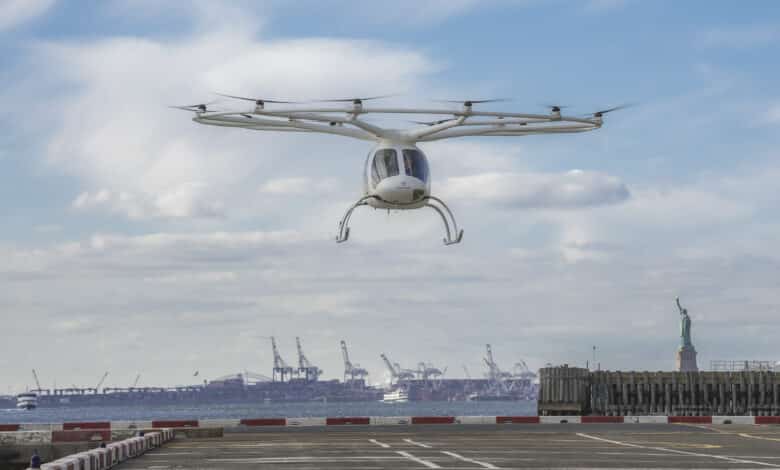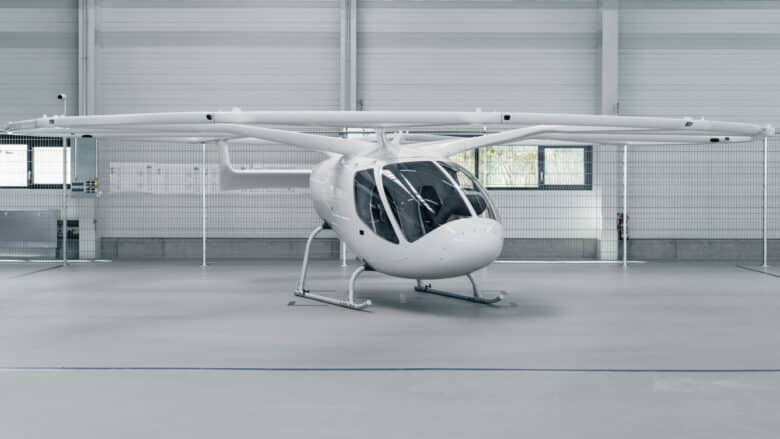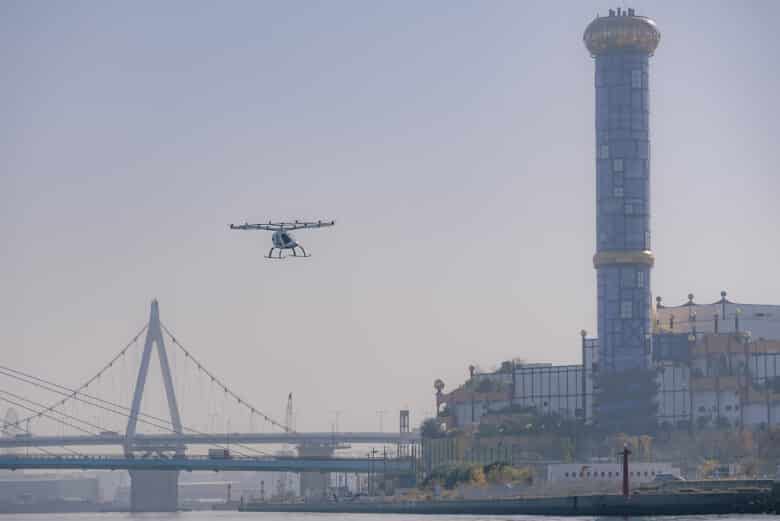
What helps against gridlocked traffic in big cities? From Volocopter’s point of view, it’s flying cabs. Federal Transport Minister Volker Wissing (FDP) is apparently also convinced by the idea. He is now apparently planning to invest an impressive 150 million euros in the German start-up.
Subsidy despite austerity measures
The German government is actually tightening its belts at the moment. The reason for this is the budget ruling handed down by the Federal Constitutional Court a few months ago. This led to a billion-euro hole in the state coffers, which has now resulted in a strict austerity course. For example, the environmental bonus was suddenly scrapped within the space of a few days, which is obviously reflected in the current slump in sales of electric cars.
However, Federal Transport Minister Volker Wissing apparently does not take such a strict view. As consistent media reports now suggest, the FDP politician is planning an investment in the three-digit million range. However, it is by no means his intention to revive the environmental bonus bit by bit. Rather, he wants to invest in Volocopter, as reported by Der Spiegel, for example. This is a start-up that has set itself the task of manufacturing air cabs.
Volocopter popular with transport ministers
If the news is true, it would be “interesting” in many respects. The fact that the German government is currently pursuing a tough austerity course is just one aspect. Another is that Volker Wissing, as a member of the FDP, is a member of the traffic light faction of all parties, which almost religiously wants to adhere to the so-called debt brake. This means that, according to his party manifesto, new expenditure should really only be made in absolutely exceptional cases.

It should also be noted that Volocopter was already popular with Wissing’s predecessor Andreas Scheuer (CSU). He also supported the air cab start-up. What is also really surprising is the high risk that the Federal Minister of Transport would be taking here. After all, he would be putting all his eggs in one basket, so to speak. In addition to Volocopter, there is another company that specializes in the development of air cabs – Lilium. However, according to the Spiegel report, the competitor is not to receive a cent.
The entire investment sum of 150 million euros is to go to Volocopter. If the funding were split between the two companies, the German government would invest in the development of air cabs as an idea. This way, however, only Volocopter receives support, which would certainly be a questionable intervention in the market. The lack of diversification of the investment is also extremely risky. This is also emphasized by the management consultancy PWC, as can be seen from a report in the Standard.
Is the launch of Volocopter imminent?
Incidentally, the federal government is not to bear the full amount of the investment. Rather, this is a joint project between the federal government and Bavaria. The largest federal state in terms of area is to provide half of the 150 million. However, the federal government will probably initially advance the entire sum. In view of the high investment sum and the corresponding risk, the question naturally arises as to why Wissing wants to invest here at all. Is the launch of Volocopter possibly imminent?

There is currently open speculation that the air cab startup could receive its type certification as early as this summer. A launch would then be conceivable before the end of the year. However, there is still a lot of subjunctive in the whole thing. When and whether air cabs will actually take to the skies is still written in the stars. Even if the plan were to work out, the initial economic viability must be questioned.
Experience has shown that the market launch is associated with further expenditure and therefore necessary investment. The federal government would probably have to act as a financial backer again in order to really give Volocopter a stable role on the market. It remains to be seen whether the plan will work out. Volocopter is apparently planning to build up to 18 flying cabs as early as 2024. This is likely to be followed by an initial test phase. Whether the whole thing will ultimately be commercially successful remains to be seen.

